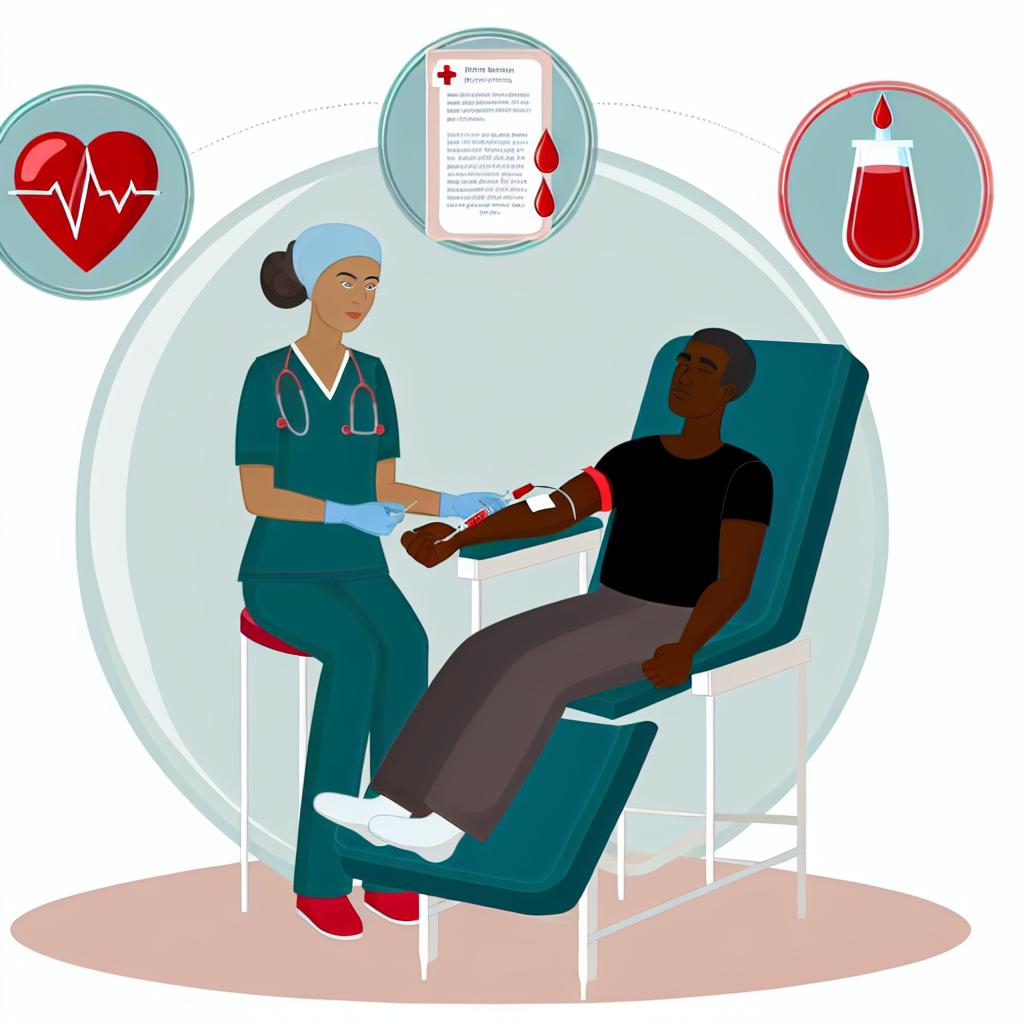Understanding Blood Donation
Blood donation is the process whereby an individual voluntarily has blood drawn for the purpose of transfusion. It is a critical component of healthcare systems around the world. Blood is essential to human life, and various medical conditions and procedures require blood transfusions to maintain optimum health or save lives. Blood and its components—such as red cells, white cells, plasma, and platelets—perform myriad functions necessary for sustaining life.
The Blood Donation Process
The blood donation process involves several steps, beginning with registration. Donors provide basic information and undergo a brief medical history review and a simple physical examination. The actual blood collection takes approximately 10 to 15 minutes. The entire visit, however, including recovery and refreshments, usually lasts about an hour. The donated blood is subsequently screened, processed, and stored before distribution to hospitals and medical facilities.
Types of Blood Donation
There are different types of blood donation, designed to address various medical needs:
- Whole Blood Donation: This is the most common type and involves the donation of approximately one pint of blood. It is often used in emergency situations.
- Platelet Donation: Platelet apheresis is used to collect platelets, which aid in blood clotting and are vital for patients undergoing chemotherapy or surgeries.
- Plasma Donation: Plasma, the liquid component of blood, is used for patients with liver conditions, burns, and severe infections.
- Double Red Cell Donation: This involves donating two units of red blood cells while returning other components back to the donor’s body. It benefits patients who require extensive transfusions.
Why Is Blood Donation Important?
The importance of blood donation cannot be overstated. Millions of units of blood are needed annually for surgeries, cancer treatment, chronic illnesses, and traumatic injuries. Regular and voluntary blood donation helps to maintain an adequate and safe blood supply that can meet the ongoing and unexpected demand. Additionally, donating blood has several health benefits for donors, including reduced risk of heart diseases and improved cholesterol levels.
The Lifesaving Impact
Every unit of blood donated can potentially save multiple lives by providing essential blood components to diverse patients. Blood donation ensures that hospitals and emergency services have a ready supply to treat individuals in critical conditions. This practice becomes especially crucial during periods of natural disasters or emergencies, when demand surges.
Historical Overview of Blood Donation
Blood donation has a profound history dating back to the early 20th century. The first successful blood transfusion was performed in the early 1900s, paving the way for the development of modern blood donation practices. Over time, advances in medical technology and an improved understanding of human physiology have made the process safer and more efficient, leading to widespread adoption across the globe.
Modern Advances
Technology has greatly enhanced the blood donation process. Today, innovations such as aphereses machines allow for the selective extraction of specific blood components, making donation more versatile depending on the recipients’ needs. Additionally, advanced screening methods help ensure the safety and purity of donated blood, mitigating the risk of transmitting infectious diseases.
Eligibility Criteria
To donate blood, individuals must meet certain eligibility criteria. Generally, donors must be at least 16 or 17 years old, depending on local regulations, and weigh at least 110 pounds. Potential donors are screened for health conditions, travel history, and lifestyle factors that might affect blood safety. Ensuring donor eligibility is crucial for maintaining a secure blood supply.
Health Benefits for Donors
While the primary intention of blood donation is to assist those in need, many donors report personal health benefits, as well. Regular blood donation has been associated with a healthier heart and cardiovascular system. It also aids in balancing iron levels in the body, which can reduce the risk of heart attacks. However, these potential benefits should not replace professional medical consultation or the necessity for an individual to monitor their health.
Challenges in Blood Donation
Despite its importance, blood donation faces several challenges. The demand for blood often outstrips supply, especially in areas with less access to healthcare resources. Certain blood types are rarer, making it crucial to have a diverse pool of donors. Moreover, misconceptions and fears about the donation process can deter potential donors. Addressing these challenges involves public education and awareness campaigns aimed at dispelling myths and encouraging community participation.
The Role of Blood Donation Organizations
Organizations like the American Red Cross and national blood services play a pivotal role in managing blood donations. They are responsible for organizing drives, collecting and testing blood, and distributing it to hospitals. These organizations also engage in research and advocacy, striving to improve the safety, availability, and efficiency of blood donation processes globally.
Community Engagement
Local communities are essential in supporting blood donation campaigns. Community-based drives and educational seminars promote awareness and participation. Engaging with local leaders and influencers can further amplify these efforts, ensuring sustained interest and commitment from residents in supporting local healthcare needs.
Future of Blood Donation
The future of blood donation looks promising, with ongoing research into artificial blood substitutes and more effective methods of storing and transporting blood. These advancements could revolutionize how blood is collected, stored, and used, potentially eliminating shortages and making transfusions more accessible worldwide.
Final Thoughts on Voluntary Blood Donation
Voluntary blood donation remains a vital practice that significantly impacts healthcare systems and saves lives. Understanding its processes, benefits, and challenges can empower individuals to contribute more effectively. For those considering becoming donors, it’s worth taking the time to learn about the requirements and benefits, and to participate in community initiatives—each donation makes a difference, both to individual recipients and to the strength of healthcare systems globally.
For those interested in blood donation, it is recommended to contact local blood banks or health organizations for more detailed information and guidance on how to become a regular contributor to this life-saving practice.
